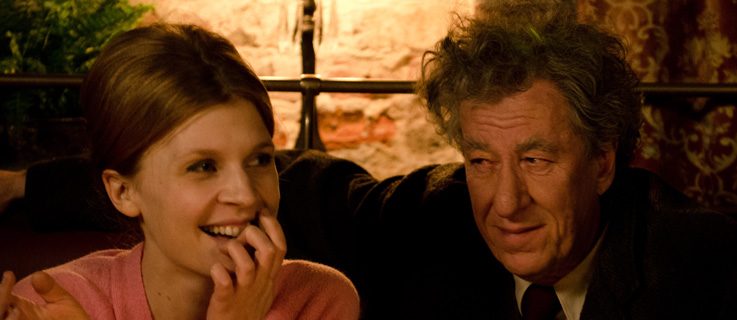While handsome, “Final Portrait” is never formally daring and rarely exciting. For a film that speaks of art being uncontrollable, surreal and rebellious, it feels a little too tame, too emotionally straightforward.
One of the frequent tricks employed by director Stanley Tucci in Final Portrait is to let the camera linger in invasive close-ups on Armie Hammer’s perfectly formed face. Hammer is playing James Lord, a writer who is sitting for a portrait by the Swiss artist Alberto Giacometti (Geoffrey Rush).
The camera roves over his features, presumably following Giacometti’s eyes as he searches for the truth in his face, something he can translate onto his canvas. Yet something isn’t quite right. Hammer’s impassive, chiselled face suits, perhaps, a Greek sculpture, yet Giacometti’s work conveys a deeper anguish and emotional complexity that we never see in Hammer.
This disconnect between what Giacometti perceives and what everyone else sees is one of principle preoccupations of
Final Portrait, a British-French co-production. Yet the film never fully satisfies as a piece of artistic expression itself. Like Hammer’s classical good looks, it feels a little too tame, too emotionally straightforward to capture the anarchic spirit of its subject.
The production design by James Merifield painstakingly recreates Giacometti’s shabby workshop – as seen in photos taken by Lord himself - while a desaturated palette further builds on the aesthetic connections to the painter’s resolutely colourless work. Rush really looks the part, shuffling about his clay-stained studio and revelling in some of the hammier, more performative elements of Giacometti’s character. It’s all very … pretty.
It’s the very kind of prettiness that the painter himself rejects. While handsome,
Final Portrait is never formally daring and rarely exciting. Instead, it hits familiar biopic beats of regular drinking, artistic frustration and sexual infidelity. There are some big laughs along the way, it’s a pleasure to see Tony Shalhoub on the big screen again and there are a couple of visually inventive moments. Yet for a film that speaks of art being uncontrollable, surreal and rebellious, that isn't reflected in the film making, never embracing Giacometti’s avant-garde sensibilities.
